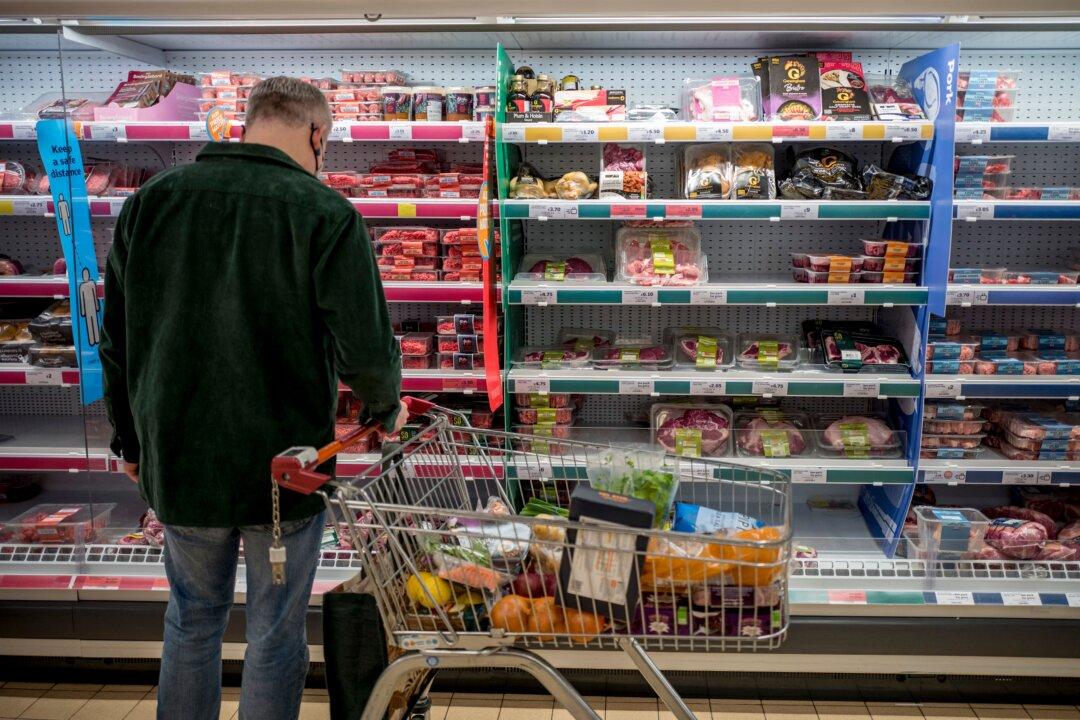Half of the UK population has reported buying less food when shopping in recent weeks, as food price inflation puts increasing pressure on British households.
According to survey results from the Office for National Statistics (ONS), the rising cost of living has caused Britons to cut back on their spending on food.





